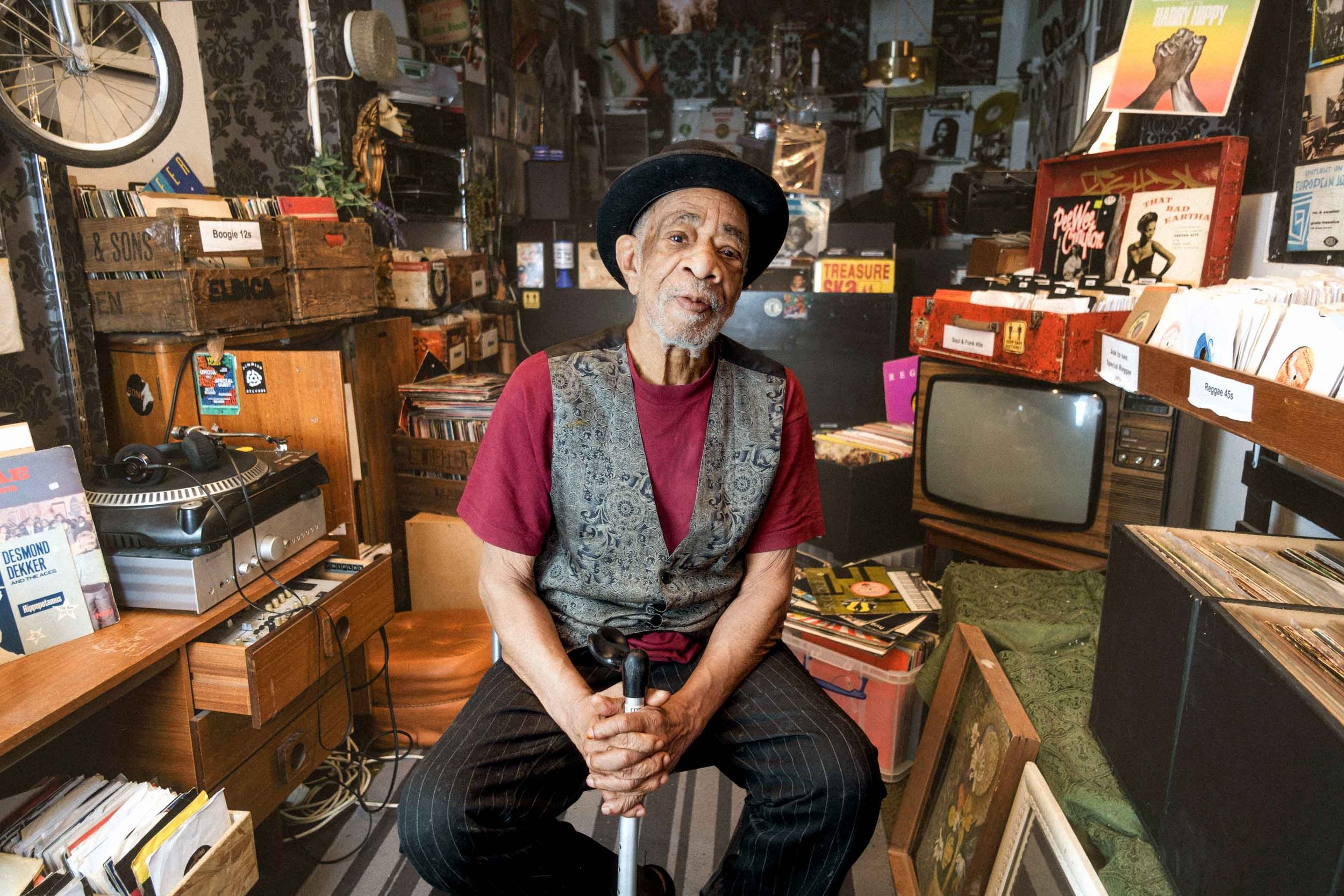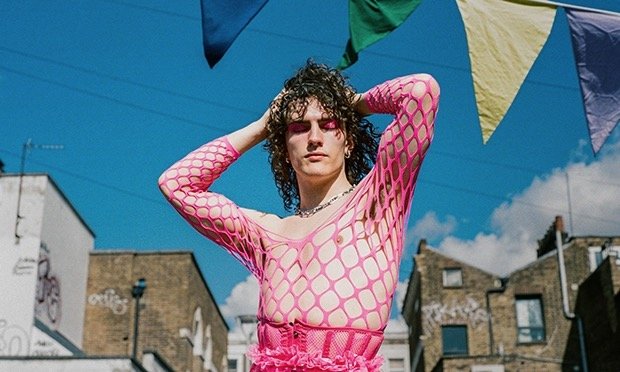‘A place for people who don’t have a place’: Future Hackney’s upcoming exhibition ‘The Strip’ is a paean to Dalston
The late Newton Dunbar, founder of the Four Aces and a Dalston legend. Photograph: Don TravisThe late Newton Dunbar, founder of the Four Aces and a Dalston legend. Photograph: Don Travis
Storytelling collective Future Hackney will this month unveil its latest project, The Strip – a love letter to Dalston and the Kingsland Road in the form of photographs and tales of people who have made the area such a hotbed of counter-culture.
In a first for Future Hackney, the photographs will be on display in two exhibitions – one outdoors, next to the entrance of the Curve Garden, and one inside BSMT Space gallery on Kingsland Road.
The gallery show will feature work by Don Travis and Wayne Crichlow, who together run Future Hackney, alongside three invited artists: photographers Neil Martinson and Connie Swift, and sculptor Bart Janssen.
Travis told the Citizen: “Kingsland Road has always been a space I have gravitated to from when I was a child. From Centreprise bookshop to Johnson’s Cafe and the iconic Peace Mural, it was always happening.
“I was a big fan of the Four Aces incorporating Labyrinth back in the mid to late 80s, and spent hours dancing in Newton Dunbar’s club – just opposite where this exhibition will be.
“I once made a documentary film about Centreprise and now I use photography and engagement to encourage locals to tell and record their own histories and reminiscences.
“Dalston is a welcoming place for those who have felt marginalised over the years, including the Black and queer communities, whose spaces have to be fought for.”
Newton Dunbar, founder of the Four Aces, died earlier this year, but before his passing, he spent three months with Travis as she recorded his stories and took photographs.
He told her about the challenges of setting up the club in 1966: “We had a nightclub licence but it was a very tough time and the police saw that what I was trying to do was Black-orientated, Black-owned, and of course that demon of prejudice filtered in.
“They weren’t blatantly prejudiced, but they created difficulties to make sure you did not progress. And the police tried to close us down, took me to court fourteen times.
“I managed to go through a court procedure and won and managed to survive, as did the club.”
He also revealed how he and the club’s three other founders landed on the name Four Aces: “There was a brand of cigarettes in Jamaica that we all knew called the Four Aces. So we said, ‘Yeah, that was a popular brand of cigarettes and there is four of us, let’s call it the Four Aces’.”
Bobby paid tribute to Dalston Superstore. Photograph: Don Travis
Another of Travis’s subjects for The Strip is Bobby, who paid tribute to queer venue Dalston Superstore.
“It’s like our mecca,” he told Travis. “Superstore is the home and the anchor for anyone and especially me. It’s a place for people who don’t have a place in London.”
He described the “dying of queer venues” as “tragic”, and said of Superstore: “You get to go to this place where it’s almost like an idyllic society where straight women, heterosexual women, heterosexual men, gay men, queer men, non-binary people all exist in the same space and accept each other which is how it should be.
“It’s the nicest thing ever and that’s why I love it so much.”
Eighty-two-year-old Cornelius St Elmo Hinds, or ‘Dalston’s best dressed man’, is another who features in The Strip. He arrived in Dalston from Barbados in 1960, and spoke to Future Hackney about that experience.
“I didn’t have it easy in the beginning and lived with my older brother in one room,” he recounted. “However, I went on to college here and became one of the best cabinet makers around. But it was tough and people here were very racist.
“We were only allowed in Black and Irish pubs back then, like the Ridley Arms, where we would mix with everyone and dance and have great fun.”
It is these stories, of which there are many more, as much as the stunning photography that mark out The Strip as something special. It is art, history and journalism rolled into one, and the result is a remarkable and engaging record of Dalston and its residents.
Future Hackney’s previous projects have seen them chart the changes on Ridley Road and document the people and businesses around Gillett Square.
The Strip runs from 9 October 2024 until August 2025 at the entrance to the Curve Garden on Dalston Lane, and from 19-29 October 2024 at BSMT Space, 529 Kingsland Road.


